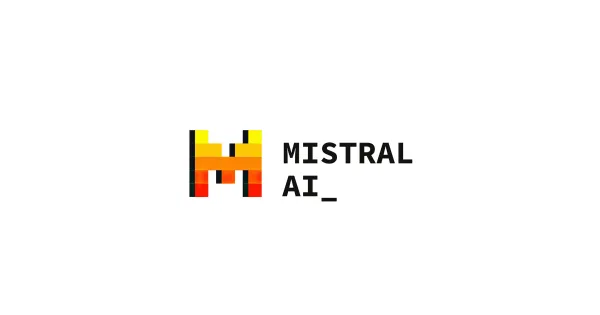Exploring the Cutting-Edge Innovations in Cloud Storage and Collaboration for 2023

Cloud storage and collaboration have become essential for businesses seeking to streamline their operations and enhance productivity.
The year 2023 promises to bring forth groundbreaking innovations in cloud technology, offering businesses new possibilities for data management, secure storage, and seamless collaboration.
In this article, we will delve into the five latest advancements in cloud storage and collaboration, exploring the transformative potential they hold for businesses in the coming year.
1) AI-Powered Data Analytics

One of the most exciting developments in cloud storage is the integration of artificial intelligence (AI) for advanced data analytics. With AI capabilities, cloud storage providers can leverage machine learning algorithms to analyze massive volumes of data, uncover valuable insights, and make data-driven decisions. AI-powered analytics tools can detect patterns, trends, and anomalies in data, enabling businesses to optimize their operations, improve efficiency, and gain a competitive edge.
By harnessing the power of AI, cloud storage providers can offer advanced data analytics features such as predictive analytics, data visualization, and natural language processing. These capabilities allow businesses to extract actionable insights from their stored data, enabling them to identify opportunities, mitigate risks, and make informed decisions. For example, AI-driven predictive analytics can help businesses anticipate customer needs, optimize inventory management, and identify potential revenue opportunities.
Additionally, AI-powered data visualization tools enable businesses to visualize complex data sets in an intuitive and interactive manner, facilitating better understanding and analysis.
Furthermore, AI in cloud storage can enhance data security and privacy. AI algorithms can continuously monitor data access and usage patterns, detect suspicious activities, and proactively identify potential security breaches. With AI-powered threat detection and prevention mechanisms, businesses can protect their sensitive data from unauthorized access and ensure compliance with data privacy regulations.
AI can also assist in data classification, tagging, and encryption, enabling businesses to implement granular access controls and maintain the confidentiality and integrity of their data.
2) Real-Time Collaboration Tools

Collaboration is a crucial aspect of modern business, and cloud technology continues to enhance it further. With cloud-based collaboration tools like Slack, Asana, and Microsoft Teams, teams can work together seamlessly, regardless of their geographical location or time zone. These tools enable real-time communication, file sharing, and collaborative editing, fostering a more efficient and productive work environment. Whether it's a small team or a large organization, cloud collaboration tools provide a centralized platform where team members can collaborate on projects, share ideas, and coordinate their efforts.
Cloud collaboration tools offer features such as document sharing, version control, and simultaneous editing, ensuring that everyone has access to the most up-to-date information. This eliminates the need for back-and-forth email exchanges and enables teams to work on the same document simultaneously, improving collaboration and reducing delays.
Additionally, cloud collaboration tools often include communication features such as chat, video conferencing, and virtual meeting rooms, enabling team members to connect and collaborate in real time. This fosters effective communication and strengthens teamwork, regardless of physical distance.
Moreover, cloud collaboration tools provide a secure and reliable environment for sharing and storing sensitive business information. With robust security measures and data encryption, businesses can have peace of mind knowing that their data is protected from unauthorized access. Cloud collaboration tools also offer data backup and recovery capabilities, ensuring that important files and documents are not lost in case of any unforeseen events. This level of data security and reliability further enhances collaboration by instilling trust among team members and enabling them to work confidently with shared information.
3) Enhanced Security Measures

As businesses increasingly rely on cloud storage, ensuring the security of sensitive data becomes paramount. Cloud storage providers employ advanced security measures to protect data from unauthorized access, ensuring that sensitive information remains confidential. These security measures include data encryption, user authentication, and secure access controls. By leveraging these security features, businesses can mitigate the risks associated with data breaches and unauthorized data access.
In addition to data security, cloud storage offers businesses the advantage of data redundancy and disaster recovery. Cloud storage providers replicate data across multiple servers and data centers, ensuring that data is backed up and accessible even in the event of hardware failures or natural disasters. This level of redundancy helps businesses safeguard against data loss and ensures continuous access to critical information.
Furthermore, cloud storage provides businesses with scalability and flexibility. With cloud storage, businesses can easily expand their storage capacity as their data needs grow, without the need for extensive infrastructure investments. This scalability allows businesses to adapt to changing storage requirements and accommodate the increasing volume of data generated in today's digital age.
Additionally, cloud storage offers the flexibility to access data from anywhere and on any device, enabling remote work and facilitating collaboration among team members located in different locations.
4) Edge Computing Integration

Edge computing is another trend that will shape the future of cloud storage and collaboration. Traditionally, cloud storage and processing have been centralized in data centers located in specific geographic regions. However, with the rise of edge computing, data processing and storage are moving closer to the edge of the network, closer to where the data is generated. This decentralized approach brings numerous benefits to businesses, such as reduced latency, improved performance, and enhanced data privacy.
By leveraging edge computing capabilities, businesses can achieve faster data transfer and real-time processing, which is crucial for applications requiring low latency, such as real-time analytics, Internet of Things (IoT) devices, and autonomous systems. Edge computing enables data processing at or near the source, minimizing the time it takes for data to travel back and forth to centralized data centers. This is particularly advantageous in scenarios where immediate decision-making and real-time responses are critical.
Moreover, edge computing enhances data privacy and security. By keeping sensitive data closer to the source and within the local network, businesses can better control and secure their data. This is especially important for industries that handle sensitive information, such as healthcare, finance, and government. Edge computing allows businesses to keep critical data within their premises or in trusted local data centers, reducing the risks associated with data breaches and unauthorized access.
5) Hybrid Cloud Solutions

As businesses strive to optimize their cloud strategies, hybrid cloud solutions are gaining prominence. A hybrid cloud combines the benefits of both public and private clouds, allowing businesses to leverage the scalability and cost-effectiveness of public cloud services while maintaining control over sensitive data and critical applications in a private cloud environment. This flexibility and customization make hybrid cloud an attractive option for organizations looking to balance their need for agility, security, and compliance.
One of the key advantages of hybrid cloud is its ability to seamlessly integrate with existing on-premises infrastructure. Businesses can leverage their existing investments in hardware and software while extending their capabilities with cloud services. This integration enables a hybrid cloud environment where workloads can be dynamically allocated between on-premises infrastructure and public cloud resources based on specific needs, cost considerations, and performance requirements.
Furthermore, hybrid cloud offers enhanced data security and compliance. By keeping sensitive data and critical applications within a private cloud environment, businesses can ensure greater control over their data and meet industry-specific compliance regulations. This is particularly important for industries such as healthcare, finance, and government, where data privacy and regulatory compliance are paramount. At the same time, non-sensitive workloads can be offloaded to the public cloud, benefiting from its scalability, elasticity, and cost efficiency.
Final Thoughts
The year 2023 holds tremendous potential for advancements in cloud storage and collaboration.
From AI-powered data analytics to real-time collaboration tools, businesses can leverage these cutting-edge innovations to streamline their operations, enhance productivity, and gain a competitive edge.
By embracing the latest developments in cloud technology, businesses can harness the power of secure and scalable storage solutions, foster seamless collaboration, and unlock new opportunities for growth and success in the digital era.





